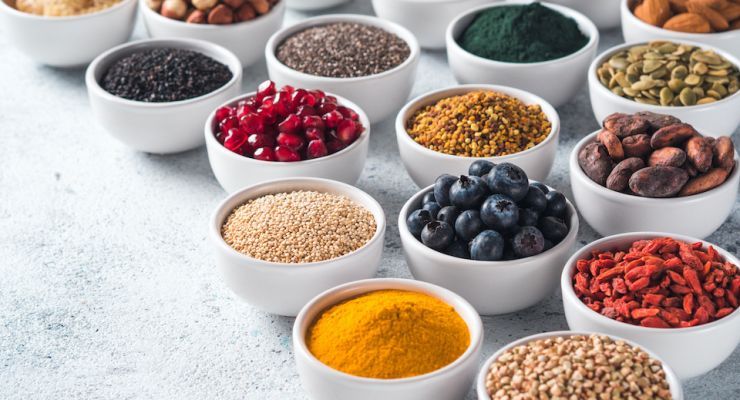Many people make the mistake of spending piles of cash at the health food store buying exotic supplements and specialty ingredients to keep them healthy. But did you know there are plenty of heart-healthy foods that are affordable – and even downright cheap – that can be easily found at your local grocery store?
When you know what to put in your cart, you can keep your heart happy and healthy for a fraction of the cost. Here are some of the best heart-healthy foods to fill up on next time you go grocery shopping.
Your healthy heart shopping list
Bananas
The humble banana is the first item on your heart-healthy shopping list. At about 60 cents a pound, bananas deliver as a cheap superfood. Potassium in bananas is good for your heart health and blood pressure. One study demonstrated how mice who were given a low-potassium diet had much harder arteries than their counterparts. Mice who received high levels of potassium, on the other hand, showed significantly less artery hardening and reduced stiffness in their aorta. Potassium also improves your heart’s function by regulating your heartbeat.
For most people, eating potassium-rich foods like bananas, sweet potatoes, beans, and dark leafy greens will contribute to a healthy diet and possibly reduce the risk of cardiovascular disease.
Garlic
A pack of five garlic bulbs sells for less than $1.50, and this cheap superfood packs a heart-healthy punch. The benefits of garlic include lowering high blood pressure, reducing high cholesterol, and protecting against the build-up of fatty deposits in the arteries. Research has found that certain nutrients in garlic, particularly a compound called allicin, release chemicals into the bloodstream that help blood vessels relax. This, in turn, results in lowered blood pressure.
Garlic may also help lower unhealthy cholesterol levels. A 2016 study found that taking an aged garlic supplement significantly reduced the build-up of plaque in the arteries of patients as compared to a placebo.
Almonds
A 1-ounce serving of almonds costs about 70 cents and contains 37 percent of your daily value for vitamin E – a heart-healthy nutrient many Americans fall short on. Almonds also deliver some calcium, fiber, and folate. Scientists have found that including almonds in your diet can reduce the risk of heart disease by keeping blood vessels healthy. Research found that they significantly increase the amount of antioxidants in the bloodstream, while reducing unhealthy lipid levels. Stock up on almonds at a reduced price in the bulk section of your grocery store.
Oats
Clocking in at about 15 cents per serving, oats are a great way to get more soluble fiber in your diet. Research suggests that increasing your intake of soluble fiber by 5 to 10 grams each day could result in a significant drop in “bad” LDL cholesterol. This effect is attributed to the power of beta-glucan – a soluble fiber that tells the liver to pull LDL cholesterol out of the blood. Then, the fiber binds to some of the cholesterol in your gut, keeping it from ever reaching your bloodstream. When shopping, be sure to steer clear of those convenient oatmeal packets as they are usually loaded with added sugars, which would undo some of the benefits of the oats.
Lentils
Lentils only cost about 10 cents per serving, but they’re an excellent source of cholesterol-lowering fiber. Lentils also provide several important minerals, B-vitamins, and protein, with just 230 calories in a whole cup.
These little legumes have impressive heart health benefits. In a study that examined food intake patterns and risk of death from coronary heart disease, researchers followed more than 16,000 middle-aged men around the world and found that legumes were associated with a whopping 82 percent reduction in heart disease risk.
Lentils also contain folate and magnesium, which are known to maintain the health of artery walls and improve the flow of blood. Want to keep your heart happy? Eat lentils.
Green Tea
When a tea bag costs as little as 10 cents, there is no excuse not to consume this heart-healthy addition to your diet. If you’ve ever worried about keeping your heart working at its best, lowering your risk of cardiovascular disease may be as easy as drinking green tea. Studies suggest it may lower LDL cholesterol and triglycerides, leading to a reduced risk of death from heart disease and stroke.
One report involving over 40,000 Japanese adults found that participants who drank green tea daily had a 26 percent lower risk of death from a heart attack or stroke compared to people who did not drink a daily cup.
With so many cheap heart-healthy superfoods, why not fill up your cart with good health!
-Susan Patterson

